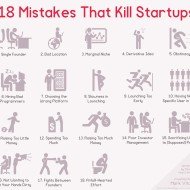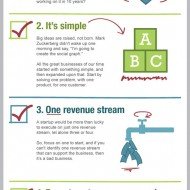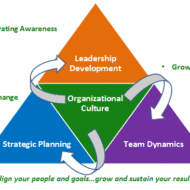Posted by Managementguru in Entrepreneurship, Startups
on Jan 12th, 2015 | 0 comments

Start Your Own Business Questions to ask before starting a business in 2015 While you can’t prepare yourself for every aspect of the entrepreneurial lifestyle, here are six important questions to ask before you quit your day job and dive in: What’s your motivation? How developed is your business savvy? How thick is your skin? Do things need to be perfect? Are you willing to get your hands dirty? What’s your financial situation? The problem is that wanting to be the boss or make lots of money generally aren’t viable reasons for launching a business. A true entrepreneur starts a business in order to improve people’s lives and contribute value to the world. What’s your business idea? Are you solving a common pain point or making someone’s day better? The drive to add value will sustain you when times are tough. A great product idea isn’t always enough to make a great business. Just because you develop something cool doesn’t mean that customers will instantly bang down your door to buy. When you are passionate about what you do, it is hard not to take criticism personally. And yes, it sucks to get a bad press review, rejection from an incubator program or negative feedback from customers. However, bad news and rejection are part of the game, and you can’t afford to dwell on the negative or take anything personally. When you work at a company, you can call someone else when your email isn’t working, you run out of printer ink or you need to set up a customer event. However, in the very early stages of your startup, you will typically need to handle most of these activities yourself, from tech support to sales to IT. Depending on your business type, it can realistically take anywhere from six months to six years to build out your business, gain traction and turn a profit. You need to ask yourself if you have both the patience and financial situation to weather this kind of time frame. NELLIE AKALP Want to be Your Own Boss? If you have always wanted to be your own boss, there has never been a better time to start your own business and make 2015 your most fulfilling year yet. Instead of talking about taking the next step, why not set yourself a timescale and think about some key decisions, spend time developing your idea and see if your business ambitions are truly viable. Before you do anything else, you need to be really honest with yourself and ask: am I truly cut out to start my own venture? You need to be calm, clear-headed and rational. When thinking about starting a business, passion and enthusiasm are essential but you need to think with a business mind at every stage. You have to take a step back and try to be non-emotional when deciding if you’re ready to go it alone. Try and look at it in the same way you would if you were advising someone else. The best advice I can give is to essentially interview yourself. Would you back yourself to lead a company? Make sure you seek as much expert outside advice as possible: it’s no good asking the opinion of a friend or family member if they have no idea about your sector. Seek advice from others in your industry. Businesses that have mentors are far more likely to still be trading after five years than those that don’t. James Caan 18 Ways to Sink Your Startup Successfully building a startup can feel like the sort of thing that requires planets aligning. Screwing up a startup, however, is incredibly simple. Some entrepreneurs...

Posted by Managementguru in Business Management, Entrepreneurship, How To, Marketing, Project Management, Startups
on Oct 30th, 2014 | 0 comments

Successful Startup Secret – Choose an idea you think is important Entrepreneurs often ask, “How do you pick an idea for a business?” and the question is difficult to answer. It all depends on your expertise, experience, financial strength, industry knowledge and of course a great team to back you up. A good place to start is with the people you surround yourself with. A great idea is undoubtedly the catalyst to set things in motion, but at the end of the day, it’s the team you hire who ultimately determine the success, or failure, of the company. There’s no precise or familiar formula, but the following five open secrets will help you in discovering that perfect magic to achieve your goals (to be discussed in five sessions). The first secret being, Choose an idea you think is important – It is Your Brainchild “Ideas are considered generally bad for two very different reasons: (1) so uncommon no one gets it or (2) so common, seems redundant. -Zaid Farooqui An idea for a new startup is like naming your baby. Suggestions pour from all quarters and the fun part is you are not going to like any one of those. Ultimately an entrepreneur would like to give life to his very own idea which may come as a boom at the grocery store, in the shower, or even during sleep. There is no better form of motivation than having a sense that you are investing your mind, soul and energy into something vital, and that never ending passion to become successful in your endeavor. Once you’ve done that, ask your friends and family, too. Getting as much input as possible is the first step to making a good decision. 1. Does your customer exist? 2. Will your business idea still be relevant in a few years? 3. Do you really want to run this business? 4. Who is your competition (and does it matter)? Pic Courtesy: Inacademy.eu You need mammoth strength, I’m talking about your will power to start and run the show, for which you need to believe in yourself completely. This is the first step, “Believing in yourself”, the rest follows automatically. This self-belief comes when you possess the right business proposition for the right target segment with a clear business plan. Startup Business Plan For a Restaurant Here I have listed some of the enterprising startup ideas that have shown growth in 2014 and seem to be lucrative in the years to come: Online store – Requirements: A good product or service, a reliable and authentic payment gateway, a easily navigable website and a large market. Personal Training – Requirements: Expertise and Knowledge on nutrition and exercises, a facebook page, a skype account or Google hang-out to build followers, a subscription payment gateway through Paypal or other similar bank accounts. Photography– Requirements: A state of the art camera, a great portfolio of your pictures, a creative facebook page or pinterest board to promote yourself. Online Teaching– Requirements: Expertise in the concerned subject, member in a popular teaching platform or your own website, an LMS software, skype account. HR Recruitment– Requirements: Huge contacts in the industry, a reliable partner, a good website with testimonials, understanding client requirements and satisfying by supplying appropriate talent. These ideas suit people with minimum investment in mind, but if executed properly you can establish yourself nicely in a span of two years and then there is no looking...

Posted by Managementguru in Entrepreneurship, Human Resource, Organisational behaviour, Principles of Management, Training & Development
on Mar 31st, 2014 | 0 comments

Defining Organizational Culture Business is an integral part of the society; and it influences other elements of the social system, which in turn affect business. The entire sphere of business activities are influenced by the social structure and culture of a society. The social system is influenced by the way the business functions, innovations, transmission and diffusion of information and new ideas etc. Business activities have greatly influenced social attitudes, values, outlooks, customs and traits. However, it is very difficult and, in some cases, almost impossible to change many elements of the social environment in the short run. Hence, a business may have to anticipate and adapt to these uncontrollable external environments. Socio-cultural environment refers to the influence exercised by certain social factors, which are “beyond the company’s gate“. This includes attitude of people towards: Work Wealth Knowledge Family Marriage Religion Education Ethics and social responsibility of business. Belief System Influencing the Action: Culture is something that is evolved in a society over a long period and it represents the unified belief system of a large group of people. An organization can be distinguished from another by way of its culture, since organizational culture is unique in its perspective and methodology. When people from different social backgrounds are made to work under the same roof, a corporate organization acquires a distinct culture. Culture conveys a sense of identity for the organization. It facilitates the generation of commitment to do something noble than one’s own self-interest. Cultural Differences: As business go international, the need for understanding and appreciating cultural differences across countries is essential. Any move from one country to another will create a certain amount of confusion, disorientation and emotional upheaval. Especially, people form Asian countries that migrate to the west are subjected to what is called a “culture shock”, in terms of attitude, working style, language, way of life, dress codes and negotiating styles. Freshers may adapt to these changes quickly, since they are natural and easy to be trained. The problem arises with individuals who had been working under a totally different cultural setup from that of the new cultural environment; they will have to undergo the process of ‘unlearning‘, which is more like swapping old ideas for new ideas. This change process is what both the employees and the management find challenging; but ultimately what needs to be done has to be done. Culture Shock: Multi national and Trans national companies, which have business establishments in different parts of the world, must be prepared to cope with the culture shock. Since huge investments go into their projects, they have to think and analyze about the cultural and social aspects that have a definite impact on the working of organisations. For example, the work attitude of employees in the west might lay emphasis on services and results, oriented towards self-improvement; while that of the Asian counterparts may be patience and sacrifice rooted in emotions and loyalty. Business can be considered as a large social network serving to satisfy economic and social interests; culture acts as the social glue that helps hold the organization together by providing appropriate standards for the behavior of organization members. Slogans of Some Reputed Organizations in the Industry: Nokia: Connecting people Jet Airways: The joy of flying Reliance Industries: Growth is life Citibank: Your citi never sleeps The above cited examples give you a fair idea about what a particular company stands for. The orientation of these companies, expressed in the form of SLOGANS contributed to the successful conduct of their...

Posted by Managementguru in Human Resource, Motivation, Organisational behaviour, Principles of Management, Training & Development
on Mar 31st, 2014 | 0 comments

Human Behavior- A Psychodynamic Approach In any organization, utmost importance is given to human resource management. Handling or manipulating other resources like physical, financial or production is at your discretion. When it comes to managing your employees, there you go! You start feeling the pinch. Man is like a “live wire” and if you don’t possess the mastery to understand and utilize the power behind his psyche, then you are at a loss and you are not capable of what is called “the wizard touch”. Maintaining the Employee Morale: The main problem with your subordinates or even with yourself might be boosting up of morale. Always keeping yourself in a cheerful proposition will take you to greater heights, as it helps you to achieve your goals faster. Human strength lies in self belief which is his reserved store of strength, the one which he never utilizes or not allowed to utilize to the fullest extent possible. A bureaucratic or autocratic manager should understand the fact that when human mind is given a chance to explore with full freedom instead of following orders it comes out with the greatest ideas; which may prove fruitful to your organization in a big way. Make Your Work-force Dynamic: If a person wants to become successful in a business venture, he should possess the fire of unfailing enthusiasm and the nerve to face the adversities that come in his way. Life is a game and so is business. You can play the game fearlessly when you are backed up by like minded individuals who will carry on your fire to the next level. So it is important on your part to prepare your subordinates to adapt to the different dimensions of the business atmosphere and make them more dynamic. Human mind has the power to grasp things faster than what we assume it to be. Even average performers can be transformed into star performers when, The work itself is appealing, yielding and useful The work has scope for independent activities The Work defines goals or targets The social atmosphere created by the manager is warm Innovative ideas are welcome Empathy on part of the manager The Power of Relaxation: Another important aspect for the betterment of human psyche is relaxation. A relaxed mind can achieve things hundred times better. People who are always on the run have the feeling that they have not accomplished much. If you keenly observe, only 8 hours of productive work is done every day. In order to accomplish whatever you have in your agenda, you definitely need to relax and plan. The art of resting the mind and the power to dismiss all worries and exhaustion is probably the winning formula. The employer who secures the goodwill of his employees can accomplish more with less effort and exhaustion. Try to bring out the creativity of your subordinates to make the climate of your firm cordial and the attitude...

Posted by Managementguru in Business Management, Change management, Decision Making, Entrepreneurship, Human Resource, Leadership
on Mar 30th, 2014 | 0 comments

Power and Balance in Corporate Governance Power has the ability to disorient a person’s behavior and attitude. When properly used it leads to height of efficiency, when misused it calls for calamity and disorientation in the entire business firm. It is nothing but the authority that comes with your job which has to be utilized for constructive purpose and at the same time to ascertain that things are “going in the right direction.” Precise use of power leads to a congenial atmosphere in your business arena”. Otherwise in course of time you might have to tackle warfare with your subordinates and the “undercurrent of animosity” might ruin your business success. How it affects Inter-Personal Relationship: When we talk about POWER it usually fits well into the top level management cadre, as managers and senior managers are assigned with huge powers in order to lead the firm in times of crisis as well as maintain the consistency of the nature of the firm. So when there is abuse of power consciously or unconsciously, people create a space between themselves and that particular person who misuses the power. So the result would be a lack of interpersonal relationship between the manager and the employees. Managers generally acquire and use influence that has its impact not only on the behavior of the individuals, but also on the organizational effectiveness as a whole which in turn affects productivity. Use Power as a Constructive Tool: In fact, authoritative behavior is often misunderstood by most of the managers in the business setup; there is a need for the managers to skillfully use their power in order to extract work from their teams as well as to maintain a balance between the extent to which authority must be used and the tolerance level of the employees’ (mind set). So it is more of a psychology which involves much critical analysis on the part of the manager to understand the constructive aspects of his authority and how employees at a lower level will always look up to him for support and guidance and not indifference. Power covers and affects the following important aspects, Discretion Crisis management Dependence of employees Responsibility Leadership Governance Interpersonal relationship Change management Environmental influences Reward systems Collaborative management Success of the firm and so on. In order to maintain his own integrity as well as the organisations’ the manager must be able to appreciate the relevance of power in management just by not looking into the literature but act in accordance with the situation. A detailed analysis of power dynamics makes the manager more effective in dealing with behavior inconsistencies in the organization. Try to be more open in your communication and make your employees feel that “You are always there” to support and guide them. This in turn will make your “Boss to have a second look at you” for a promotional pay. This discussion is from the manager’s perspective and there is more to be discussed and considered from an employee’s...










